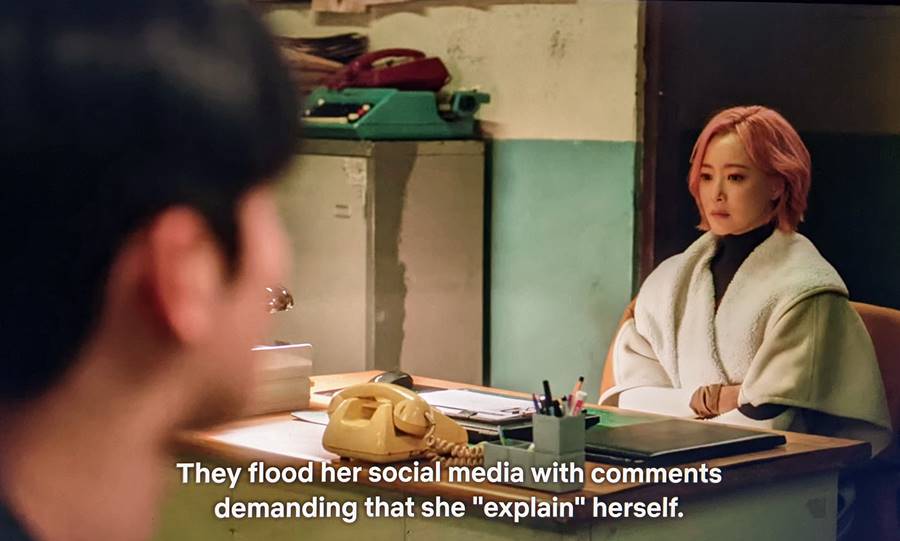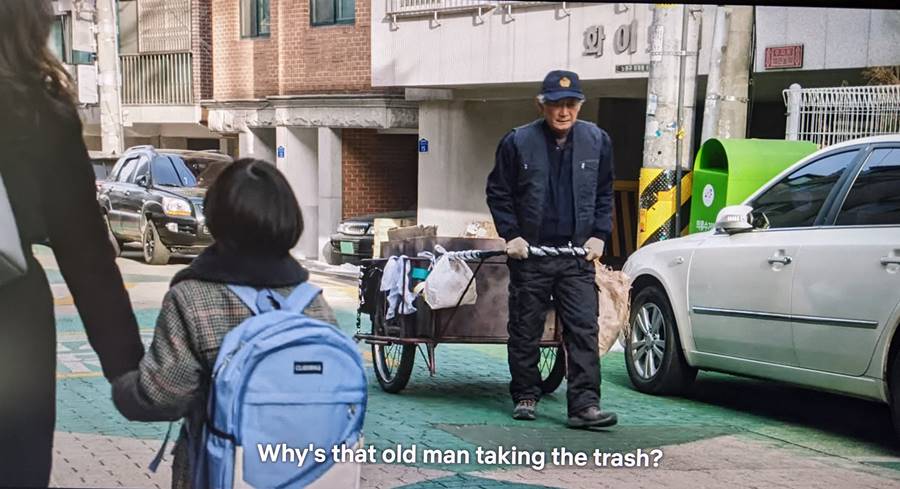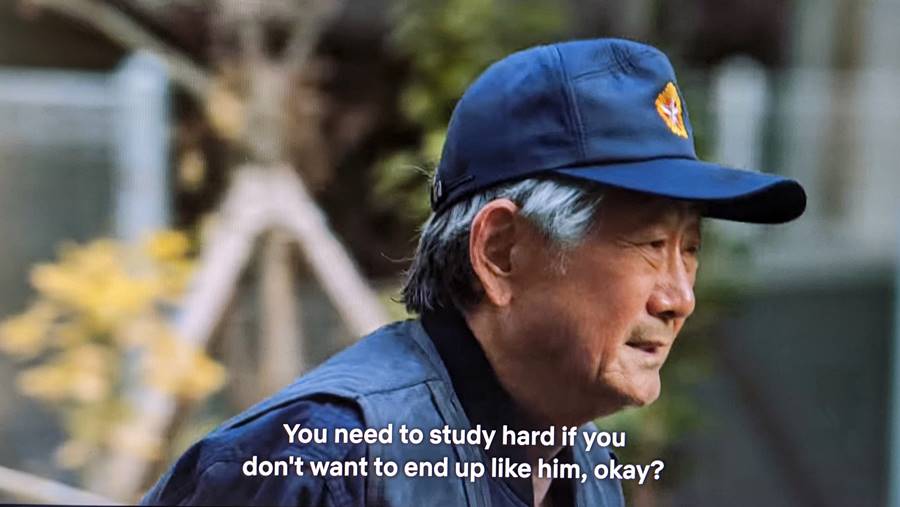
By Jae-Ha Kim
jaehakim.com
July 28, 2022
☆☆☆☆
Koo Ryeon (played by Kim Hee-soon)
Choi Joon-woong (played by Rowoon)
Park Joong-il (played by Lee Soo-hyuk)
Lim Ryung-gu (played by Yun Ji-on)
↑Note: Korean names denote the surname followed by the given name.
TRIGGER WARNING: Almost every episode deals with suicide, so please be aware of that if you are thinking about watching this K-drama.
“Tomorrow” tells the stories of people who are on the verge of ending their lives. This is where Ryeon and Ryung-gu come in. These angels of death work for Jumadeung, an elite company that employs those who’ve already died, but are revived to deal with matters of the afterlife. Some employees are given the option to reincarnate and live a normal life — after fulfilling their contracts, that is.
Unlike the other employees who mostly determine whether the deceased will head to heaven or hell, Ryeon and Ryung-gu are the only team members for a niche department that was created to keep the living alive. They have the opportunity to rescue people before they end their lives. They have a strong track record and deal with cases that are intense and heartbreaking.
After years of only working with each other, they are given the opportunity to hire a third partner.
Joon-woong is a young (and alive!) man who hasn’t had any luck landing a full-time job. One evening, he witnesses a man about to jump off a bridge. Joon-woong has two choices: ignore the desperate man and head home, or try to save him. You know what he’s going to do, right? Of course Joon-woong tries to help the man and ends up falling off the bridge, too. The fall was serious enough to put him in a coma. He is given one of two options: work for Jumadeung for six months and then wake up from his coma unscathed. Or, he can do nothing and wake up from his coma in three years.
Not wanting to put his mother and younger sister through the stress of not knowing whether he’ll ever wake up, he chooses the former and is housed in the body of a middle aged man. One of the series’ most touching vignettes was watching him reunite with his father, who died when he was a child. Initially in the series, Rowoon (“Extraordinary You“) was required to overact in his role of an eager beaver and this annoyed me, because I know how talented he is. But as the K-drama progressed, so too did the development of his character.
Anyhow … Joong-gil (Lee Soo-hyuk) is their nemesis within Jumadeung. A no-nonsense reaper, his goal is to destroy Ryeon and what he perceives to be her useless group.
Note: Watching Lee Soo-hyuk eat up the scenery as he struts around like he’s on a runway is one of life’s great pleasures. Enjoy it. I know I did.

I really liked how the show addressed that small tangible actions can result in a better outlook. For instance, cleaning up a space and clearing it of clutter can improve mental stability. I think this is why many of us instinctively tidy up when we’re stressed out. (At least I do.)
“Tomorrow” does an admirable job of addressing topics such as bullying. One episode deals with high school Mean Girls who have no moral growth as they mature into adulthood. Another centers on how debilitating online bullying can feel to the victims.

Each episode is beautifully written and acted. Even the most desperate storylines are told without maudlin overkill. Standout episodes include a heartbreaking look at how young Korean girls were trafficked and forced into sexual servitude by the Japanese military. These girls and women were referred to as Comfort Women, which is an obscene euphemism for rape victims.
And there’s also an episode dedicated to a Korean War veteran who is contemplating ending his life as a way to deal with his loneliness. People see him as a worthless elderly man whose life is meaningless. They don’t know what he and his generation sacrificed so that South Korea can be what it is today. (Without giving too much away, the way the grim reapers honored his life was incredibly touching.)


One storyline that didn’t quite live up to expectations revolved around … a dog … wanting to end its own life.
The parable to this series is that all life is precious and that every life is worthy of saving.
Controversy: Some viewers noticed that on an episode featuring a registry of the dead, there were references to members of BTS. V’s full name (Kim Tae-hyung) was included on this list along with his birthday. (The show did change his birth year from 1995 to 1971, but I’m not sure what the point was in making this obvious insertion). Right underneath that entry included a fictional name that shared Jungkook’s exact birthday and year.
Airdates: Sixteen hour-ish episodes aired from April 1 to May 21, 2022 on MBC TV.
Spoiler Alert: It’s not much of a spoiler to say that Ryeon’s afterlife is complicated by how she died. As in “Goblin: The Lonely and Great God,” the most torturous punishments are meted out to those who’ve taken their own lives. If they die by suicide, they are left to live a never-ending life in hell. The series addresses this issue, but I kept wondering: Why are those who felt they had no other options destined for an afterlife of misery, especially when some of them were forced to die by society’s cruelty?
Centuries ago, Ryeon was raised in a wealthy family. After being kidnapped with hundreds of other women from her village, she finally escaped and returned back home. But only her husband was happy to see her. Her well-off mother in law, as well as all the other townspeople, were disgusted that she had most likely been a victim of rape. They viewed her survival over what had been done to her as shameful. Ryeon’s mother in law basically orders her to take her own life. Not knowing what had happened, her husband never forgave her for this act. Kim Hee-soon (“Angry Mom“) skillfully tackles all the emotions in her flashback scenes.
Oh, and Ryeon’s husband was none other than … Joong-gil.
The expectations that Ryeon should die because she has shamed (?!!) her husband’s family is insane. But it’s a concept that’s not foreign to many countries, especially in the days of yore. “My Love From Another Star” addressed this, too, when a child bride was expected to kill herself rather than live as a widow. (NOTE: I think that’s how it went. I know that she was encouraged to die, but I can’t remember exactly why…)
© 2022 JAE-HA KIM | All Rights Reserved






2 thoughts on ““Tomorrow” (내일)”